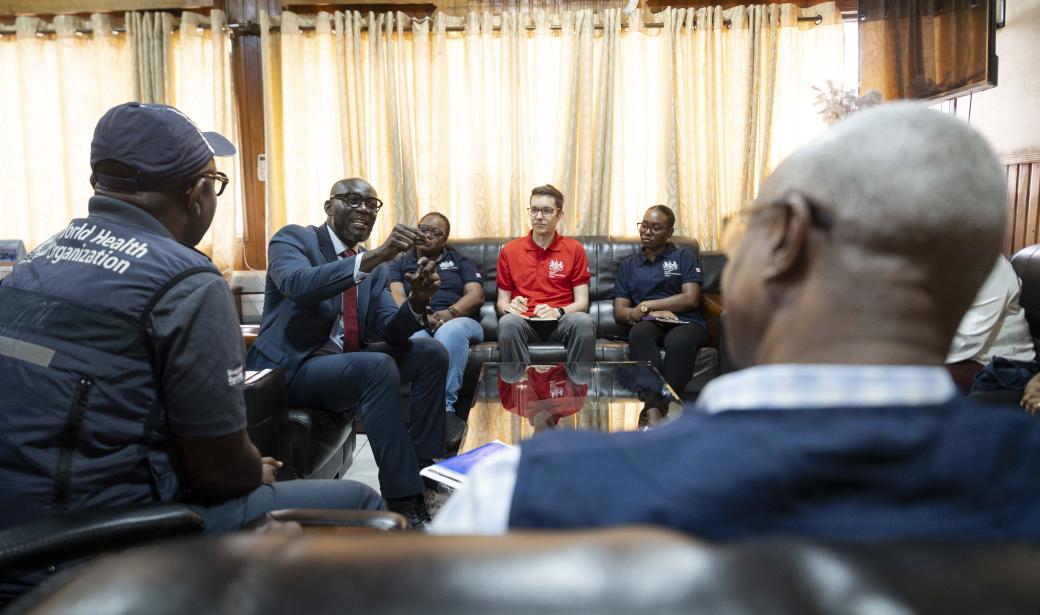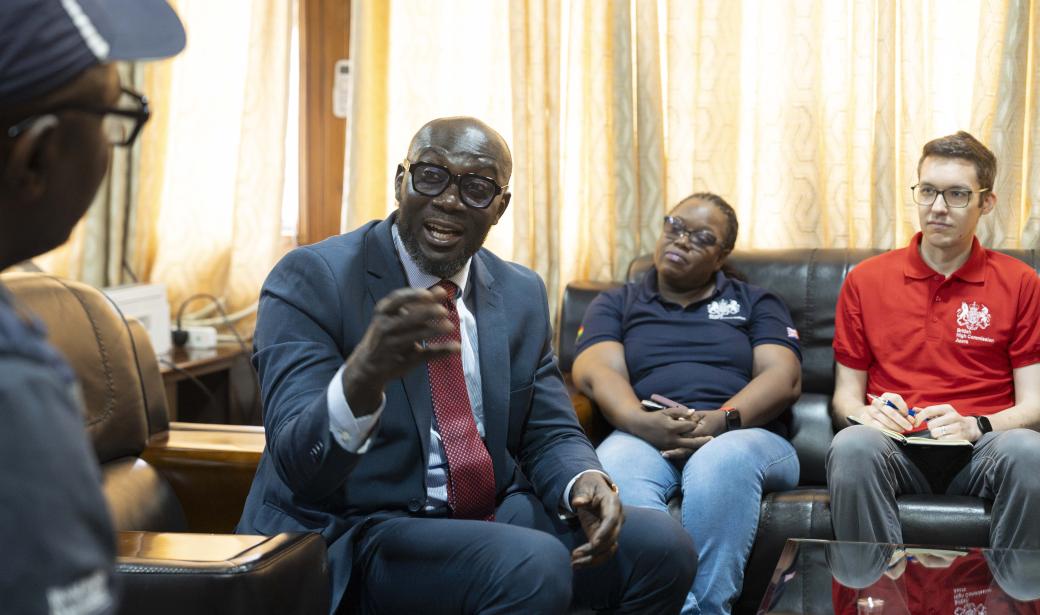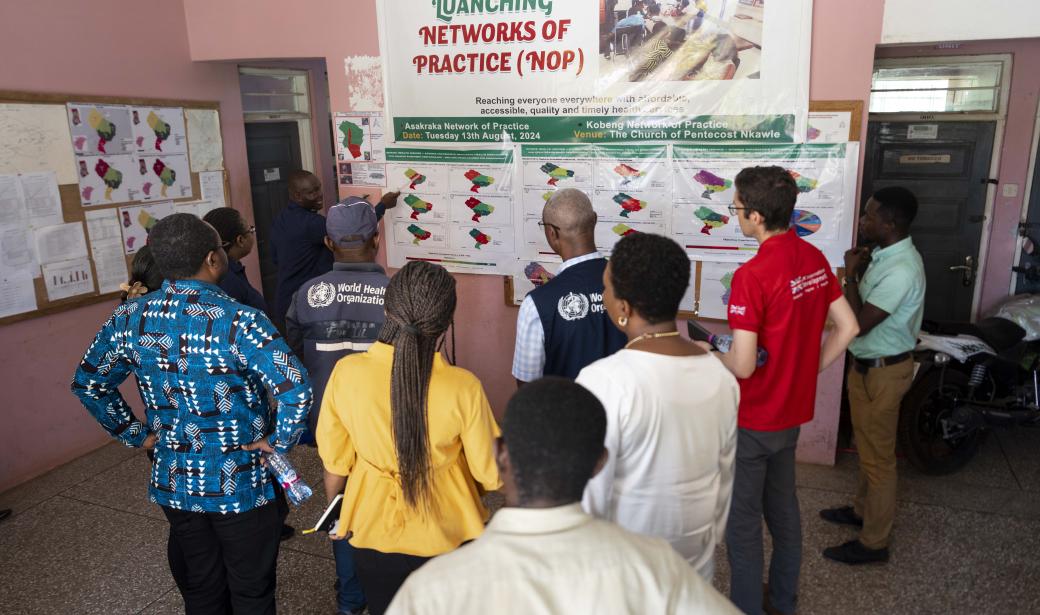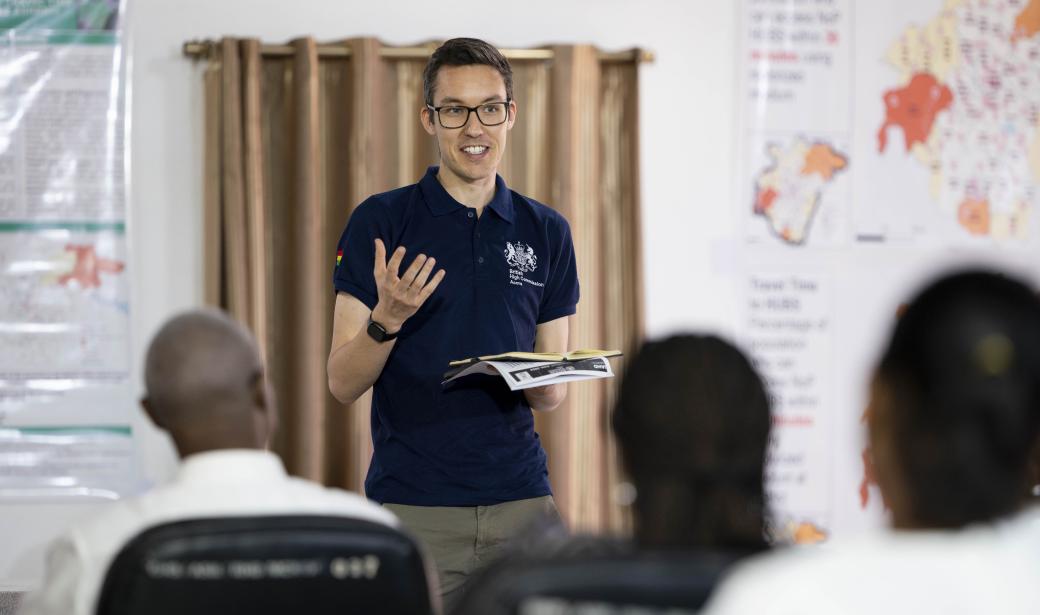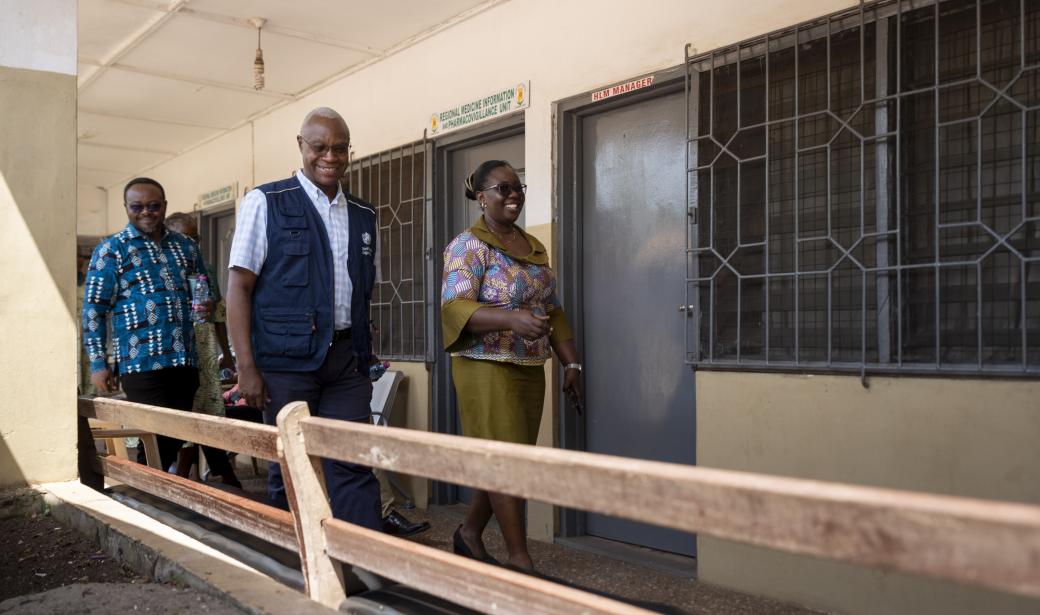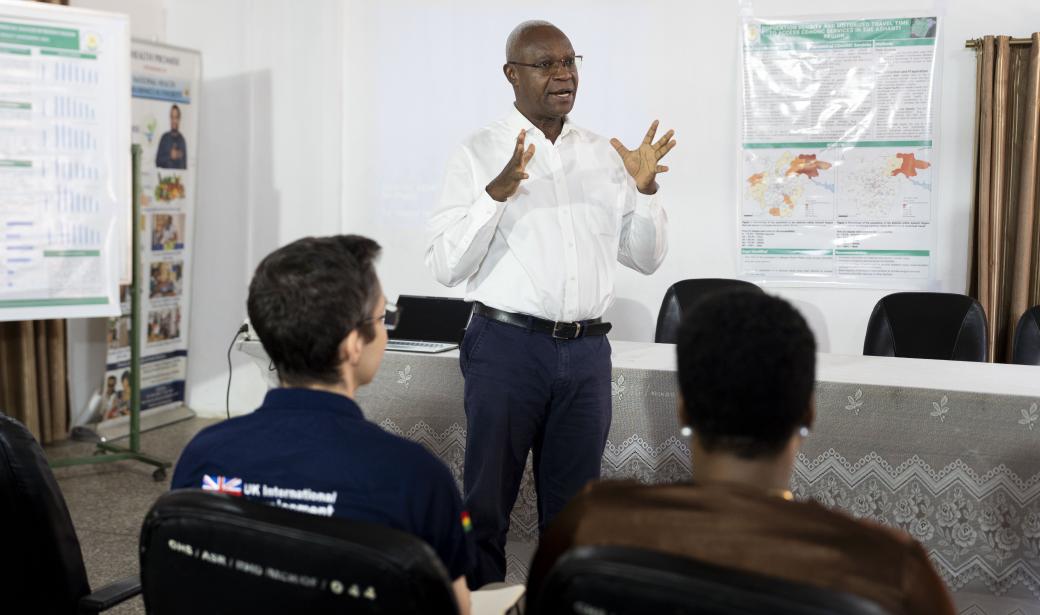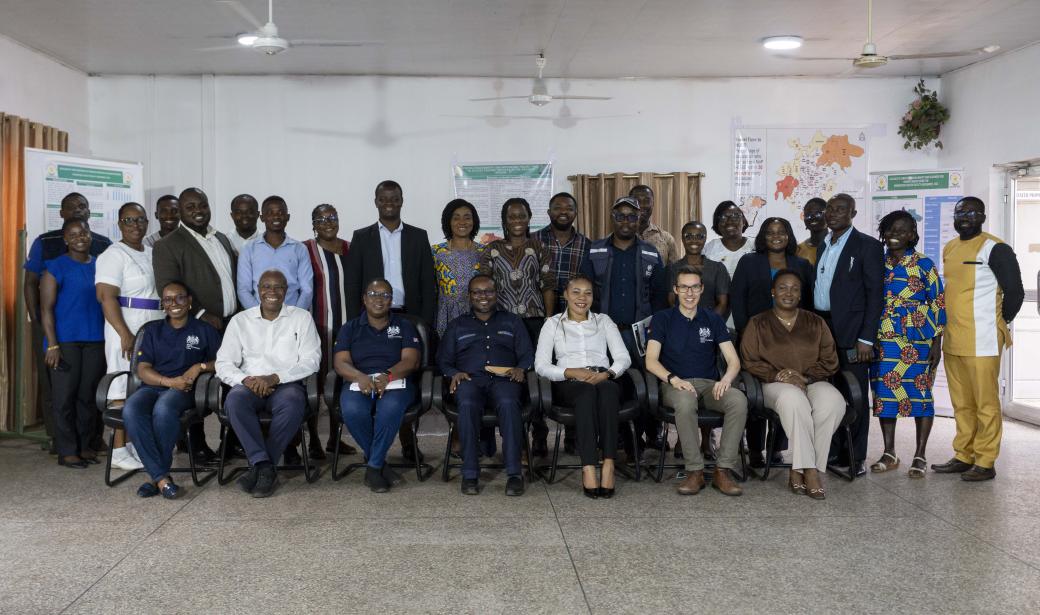In the heart of the Ashanti Region, a quiet revolution in healthcare delivery is taking place. Through a partnership between the United Kingdom Foreign, Commonwealth, and Development Office (UKFCDO) and the World Health Organization (WHO), health systems are being strengthened to serve communities better, one innovative solution at a time.
Recently, Dr. Frank Lule, Officer-in-Charge of WHO Ghana, joined UKFCDO representatives and the Ghana Health Service (GHS) on a two-day visit to the region. The aim was clear: to see firsthand how the support from the UKFCDO-WHO collaboration is transforming healthcare delivery and making universal health coverage (UHC) a reality for the people of Ghana.
“This partnership is about more than projects—it’s about people,” Dr. Lule said during the visit. “It’s about ensuring that health workers have the tools they need to make informed decisions and that communities feel the impact of these efforts in their everyday lives. Seeing the dedication of the health teams here is both inspiring and humbling.”
The visit began at the Ashanti Regional Health Directorate, where Regional Director Dr. Fred Adomako reflected on how support from UKFCDO has reshaped healthcare in the region. A key milestone has been the introduction of knowledge products developed through targeted training sessions. These tools empower health workers to use data effectively, ensuring interventions are tailored to meet the needs of their communities.
“With the support of UKFCDO, we are strengthening our foundation,” Dr. Adomako said. “The Harmonized Health Facility Assessment has given us a clearer picture of our strengths and gaps. This knowledge allows us to improve planning and deliver better healthcare services to the people we serve.”
“With the support of UKFCDO, we are strengthening our foundation,” Dr. Adomako said. “The Harmonized Health Facility Assessment has given us a clearer picture of our strengths and gaps. This knowledge allows us to improve planning and deliver better healthcare services to the people we serve.”
Health workers in Kumasi shared similar sentiments, presenting tools designed to enhance data use and optimize initiatives like the Network of Practice, a peer-learning platform driving district-level improvements.
For instance, in the Atwima Nwabiagya District, the introduction of WHO’s AccessMod tool has had a significant impact. Before its implementation, health workers struggled with pinpointing which areas were most at risk for outbreaks, leading to delayed interventions. However, with AccessMod, health workers now have a clear map of healthcare access points and can use this data to strategically deploy resources, like vaccines, to the most vulnerable communities. This shift has resulted in faster, more efficient response times, ensuring that more children receive their vaccinations on time, ultimately reducing the spread of diseases like polio.
For instance, in the Atwima Nwabiagya District, the introduction of WHO’s AccessMod tool has had a significant impact. Before its implementation, health workers struggled with pinpointing which areas were most at risk for outbreaks, leading to delayed interventions. However, with AccessMod, health workers now have a clear map of healthcare access points and can use this data to strategically deploy resources, like vaccines, to the most vulnerable communities. This shift has resulted in faster, more efficient response times, ensuring that more children receive their vaccinations on time, ultimately reducing the spread of diseases like polio.
UKFCDO Health Advisor, Dominic Farrell, was deeply moved by the visit. “What stands out to me is the impact on the ground—the way health workers are using these innovations to reach more people, especially in hard-to-reach areas. It’s a testament to the power of collaboration and shared commitment.”
As the partnership continues to unfold, the impact is clear: lives are being touched, systems are being strengthened, and communities are being empowered to thrive. This is the future of healthcare in Ghana—one built on resilience, equity, and unwavering commitment.
For Additional Information or to Request Interviews, Please contact:
Abdul-Lahie Abdul-Rahim Naa
Communications Officer
WHO Ghana Country Office
Email: abdullahiea@who.int
Tel: +233 20 196 2393
For Additional Information or to Request Interviews, Please contact:
Abdul-Lahie Abdul-Rahim Naa
Communications Officer
WHO Ghana Country Office
Email: abdullahiea@who.int
Tel: +233 20 196 2393



